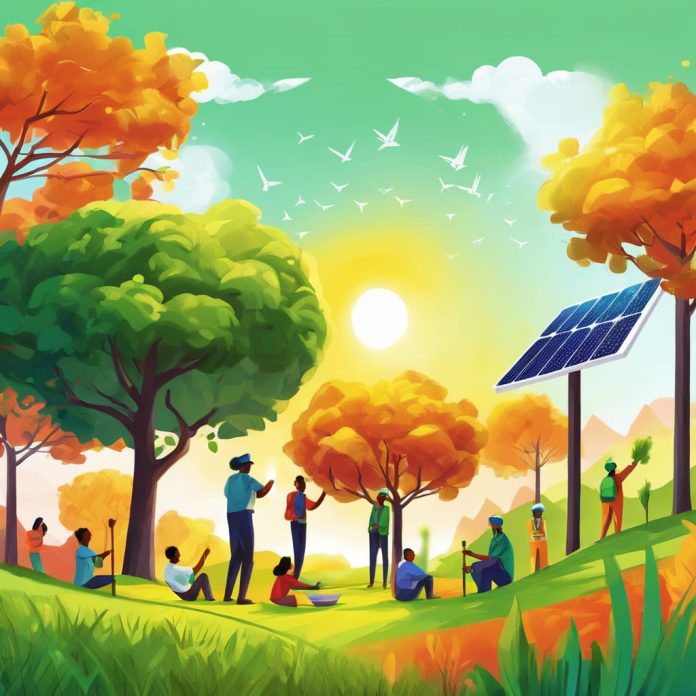Climate change stands as one of the most pressing challenges of our generation, demanding a concerted effort from every corner of the globe. While international agreements set the stage for significant progress, the power of local action is equally critical. By merging global collaboration with grassroots initiatives, we can build a formidable movement to protect our planet.
Think of climate diplomacy as a group project at school—each participant brings unique strengths to the table. Countries pool their research, technology, and strategies to develop effective solutions for cutting carbon emissions. The Intergovernmental Panel on Climate Change (IPCC) exemplifies this cooperative spirit, gathering experts worldwide to provide key insights that inform global events like the COP summits. For instance, the COP26 summit helped set ambitious targets for emissions reduction. However, not all countries share the same capabilities or challenges.
Nations such as Nigeria face disproportionate impacts from climate change despite contributing minimally to global emissions. Floods, droughts, and extreme weather events disrupt agriculture and threaten food security, making life difficult for millions. This is where climate finance plays a crucial role. Wealthier nations support less-resourced countries through mechanisms like the Green Climate Fund, which provides essential funding to help them adapt to changing conditions and safeguard their communities. While international initiatives often make headlines, local projects are where tangible change happens.
In Nigeria, Osun State has become a shining example through its “Osun State Green Initiative.” Spearheaded by Professor Chinwe Obuaku, an expert in environmental policy, this program emphasizes tree planting, waste management improvement, and renewable energy promotion. Such efforts prove that smaller regions can champion sustainability and contribute meaningfully to environmental protection. Other regions around the world are taking similar actions.
Kenya’s Machakos County also demonstrates how local leadership can make a difference. Under Governor Wavinya Ndeti, the county has implemented tree-planting campaigns and equipped schools and health centers with solar panels. These initiatives not only enhance environmental resilience but also improve daily life for residents, showcasing how communities can tackle climate change through practical measures.
Technology is another crucial tool in this fight, akin to sharing tips that make everyone’s work easier. The International Solar Alliance (ISA), formed in 2015, embodies this collaborative spirit, bringing together over 120 countries to promote solar technology and clean energy. This alliance accelerates progress and makes advanced solutions more accessible, demonstrating how technological sharing can empower nations to act more effectively. Despite these advancements, global cooperation isn’t always seamless.
Disagreements can slow progress, as seen during the COP26 summit where nations like the U.S. and China clashed over emission reduction timelines. However, differences are natural in any group project; what matters is persistence and finding common ground to move forward.
Ultimately, climate change is an issue that affects everyone—not just scientists or policymakers. Global partnerships allow for the exchange of knowledge and resources, while local projects such as those in Osun State and Machakos County highlight the potential for communities to drive impactful change. When world leaders, experts, and individuals unite in their efforts, they create a pathway to a safer, more sustainable world for future generations. Every action, whether monumental or modest, counts in the journey to combat climate change.
Share your story or advertise with us: Whatsapp: +2347068606071 Email: info@newspotng.com












